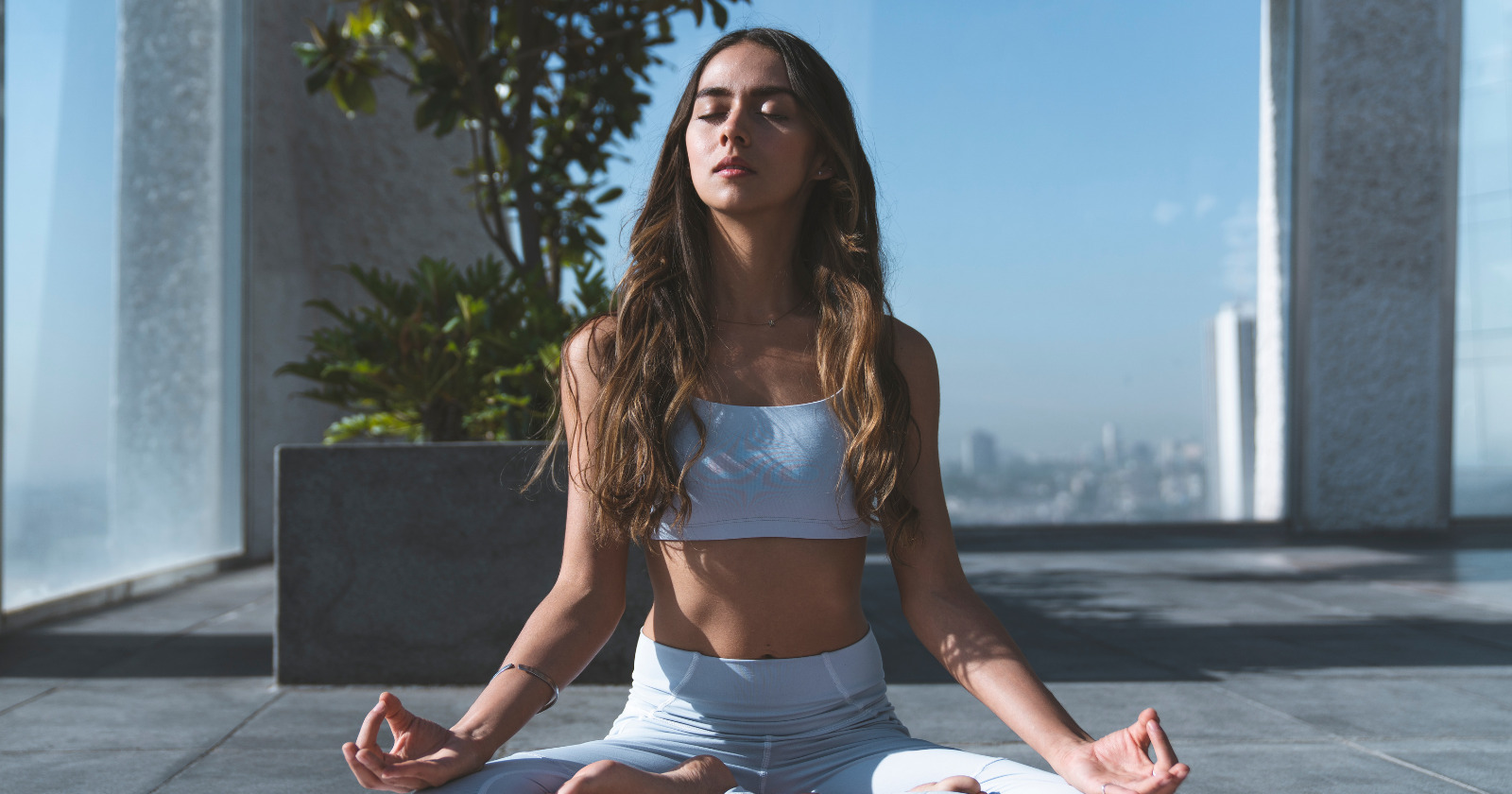For years, I believed that living in a big city meant sacrificing inner peace.
The noise, the crowds, the endless rush—it all felt unavoidable.
Like so many others, I was constantly overstimulated, distracted, and drained.
But then I started paying attention to those rare people who seemed untouched by the chaos.
The ones who moved through the city with a quiet confidence, as if they carried their own oasis of calm wherever they went.
I wanted to know their secret.
So, as a psychology enthusiast, I dove into the research.
What I found was both simple and powerful: these people weren’t just lucky—they had habits that helped them stay grounded no matter what was happening around them.
In this article, I’ll share seven of those habits with you.
Whether you live in a fast-paced city or just feel overwhelmed by life’s demands, these insights can help you create your own sense of peace—right where you are:
1) They create small pockets of stillness
Most people think peace is something you find outside of yourself—a quiet park, a cozy café, a weekend getaway.
But the people who truly stay calm in the middle of a busy city know this: peace is something you create from within.
One of the most powerful habits they have is carving out small moments of stillness throughout their day.
These moments don’t have to be long or complicated. It could be as simple as pausing for a deep breath before stepping into a crowded subway, or sitting quietly with their morning coffee instead of scrolling their phone.
Psychology backs this up: Even brief moments of mindfulness can help lower stress and increase focus.
By regularly giving their minds space to slow down, these people build an inner calm that stays with them no matter how chaotic the outside world gets.
2) They set boundaries to protect their energy
For the longest time, I said “yes” to everything.
- Controlling or justified? Man’s concerns over girlfriend’s trip with “platonic” friend lead to breakup - NewsReports
- People who maintain exceptional mental clarity in their retirement years usually display these 9 daily habits - The Blog Herald
- 5 zodiac signs that will often rewatch their favorite TV shows and movies - Parent From Heart
Invitations, work requests, last-minute plans—I felt like I had to keep up with the fast pace of city life or risk falling behind.
But the more I stretched myself thin, the more exhausted and overwhelmed I became.
Then I learned something that changed everything: peaceful people aren’t afraid to set boundaries—they know that saying no isn’t selfish, but necessary.
Psychologists Dr. Henry Cloud and Dr. John Townsend actually put this perfectly: “We change our behavior when the pain of staying the same becomes greater than the pain of changing.”
I reached that point myself; I realized that constantly overcommitting was draining me more than the discomfort of saying “no” ever could.
Slowly, I turned down plans when I needed rest, limited my screen time after work, and stopped feeling guilty for prioritizing myself.
And you know what? Nothing fell apart!
In fact, life felt lighter; by protecting my time and energy, I created more space for what truly mattered—without feeling overwhelmed by the chaos around me.
3) They embrace solitude, even in a crowded city
For years, I avoided spending time alone.
In a big city, there’s always something happening—always somewhere to be or someone to meet.
I filled my schedule to the brim, thinking that staying busy would keep me from feeling lonely.
But deep down, I was lonely.
Not because I lacked people around me, but because I never gave myself the space to just be with my own thoughts.
Eventually, I started making time for solitude—not in a dramatic way, but in small, intentional moments.
I’d take slow walks without my phone, sit on a park bench and people-watch, or enjoy a quiet meal by myself without distractions.
Instead of feeling uncomfortable, I started to feel free.
Spending time alone can boost creativity, improve self-awareness, and even make social interactions more meaningful.
The peaceful people I admire don’t avoid solitude; they seek it out as a way to recharge.
4) They find peace through small acts of gratitude

A few years ago, I caught myself constantly complaining about city life—the traffic, the noise, the crowds.
It felt like everything around me was a source of stress.
Then I stumbled upon a simple yet powerful habit: Gratitude.
Instead of focusing on what annoyed me, I started looking for small things to appreciate—a stranger holding the door open, a quiet morning before the city woke up, even just the feeling of sunshine on my face during my walk to work.
At first, it felt trivial but, over time, I noticed something incredible: My mindset started to shift and the things that once frustrated me didn’t seem as overwhelming anymore.
A study by Dr. Robert Emmons and Dr. Michael McCullough found that people who practiced gratitude consistently reported higher levels of happiness and lower stress levels.
Gratitude shifts our focus from what’s wrong to what’s right, creating a sense of peace—even in chaotic environments.
If you want to try this, start small.
At the end of each day, write down three things you’re grateful for—no matter how simple they seem.
Over time, this habit rewires your brain to find moments of peace and appreciation, even in the busiest city streets.
5) They create rituals that ground them
One thing I noticed about the calmest people I’ve met is that they all have grounding rituals—small, consistent practices that bring them a sense of stability no matter how unpredictable life gets.
For me, it started with something as simple as making tea every morning.
I’d take a few minutes to boil the water, watch the steam rise, and just breathe before checking my phone or rushing into the day.
That tiny ritual became an anchor—something familiar and soothing in the middle of a fast-paced life.
Rituals like these help reduce anxiety because they give us a sense of control in an otherwise chaotic world; the act of repeating something meaningful—even if it’s small—creates a sense of order in our minds.
Your ritual doesn’t have to be complicated.
It could be journaling for five minutes, stretching before bed, or taking a quiet walk after lunch—the key is consistency.
6) They don’t get caught up in things they can’t control
For a long time, I let the city control my mood.
If traffic was bad, I was frustrated.
If someone was rude to me on the subway, it ruined my day; if plans changed last minute, I felt stressed.
It was exhausting—constantly reacting to things I had no power over.
I learned from my errors and, rather than getting frustrated at traffic, I used that time to listen to audiobooks.
Instead of dwelling on someone else’s bad mood, I reminded myself that their emotions weren’t my responsibility.
Likewise, when unexpected changes happened, I adapted instead of resisting.
Over time, I noticed a shift—I felt lighter, less reactive, and more at peace.
The city didn’t change, but I did.
The next time something frustrating happens, pause and ask yourself: “Can I change this?”
If the answer is “no,” shift your focus to how you respond instead.
7) They don’t try to escape the chaos—they embrace it
For the longest time, I believed that to find peace in a busy city, I had to block out the chaos—avoid the noise, the crowds, the rush.
But the more I resisted it, the more frustrated I became.
Then I noticed something interesting: t
The people who seemed the most calm weren’t trying to fight the city’s energy—they were flowing with it.
Instead of getting annoyed at the noise, they accepted it as part of the rhythm of life.
Instead of wishing for empty streets, they found beauty in movement and connection.
Rather than seeing the city as an obstacle to peace, they saw it as a playground for presence.
People who practice “acceptance” rather than resistance experience lower stress and greater well-being.
When we stop seeing external factors as enemies and instead choose to work with them, we naturally feel more at ease.
Final thoughts
Finding peace in a busy city isn’t about escaping the noise—it’s about learning how to stay centered within it.
The people who create their own oasis of calm don’t have superpowers.
They’ve just built small, intentional habits that help them stay grounded no matter what’s happening around them.
If you take one thing away from this, let it be this: peace isn’t something you wait for—it’s something you practice.
Start small by choosing one habit from this list and try it today; maybe it’s setting a boundary, embracing solitude, or simply taking a deep breath before reacting to stress.
Over time, these little shifts add up—and before you know it, you’ll be carrying your own oasis of peace wherever you go!









